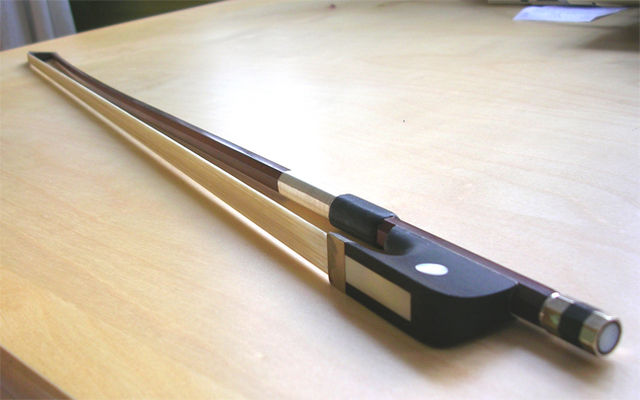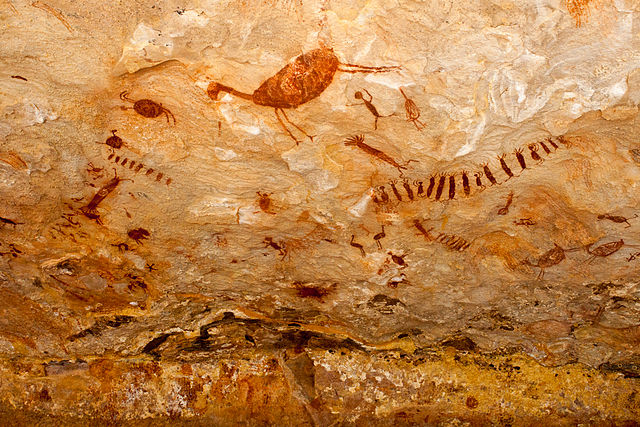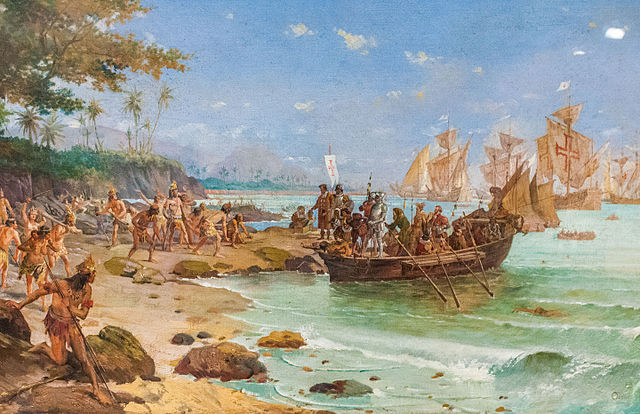Paubrasilia echinata is a species of flowering plant in the legume family, Fabaceae, that is endemic to the Atlantic Forest of Brazil. It is a Brazilian timber tree commonly known as Pernambuco wood or brazilwood and is the national tree of Brazil. This plant has a dense, orange-red heartwood that takes a high shine, and it is the premier wood used for making bows for stringed instruments. The wood also yields a historically important red dye called brazilin, which oxidizes to brazilein.
Paubrasilia
A cello bow
Bee in flower, Botanical Garden, São Paulo
Spiny trunk, Botanical Garden, São Paulo
Brazil, officially the Federative Republic of Brazil, is the largest and easternmost country in South America and in Latin America. Brazil is the world's fifth-largest country by area and the seventh most populous. Its capital is Brasília, and its most populous city is São Paulo. The federation is composed of the union of the 26 states and the Federal District. It is the only country in the Americas to have Portuguese as an official language. Brazil is one of the most multicultural and ethnically diverse nations, due to over a century of mass immigration from around the world.
Rock art at Serra da Capivara National Park, one of the largest and oldest concentrations of prehistoric sites in the Americas
Pedro Álvares Cabral landing in Porto Seguro in 1500, ushering in more than 300 years of Portuguese rule
Tiradentes, who led the separatist movement Inconfidência Mineira, was sentenced to death in 1792.
Execution of the Punishment of the Whip by Jean-Baptiste Debret. Nearly 5 million enslaved Africans were imported to Brazil during the Atlantic slave trade, more than any country.








